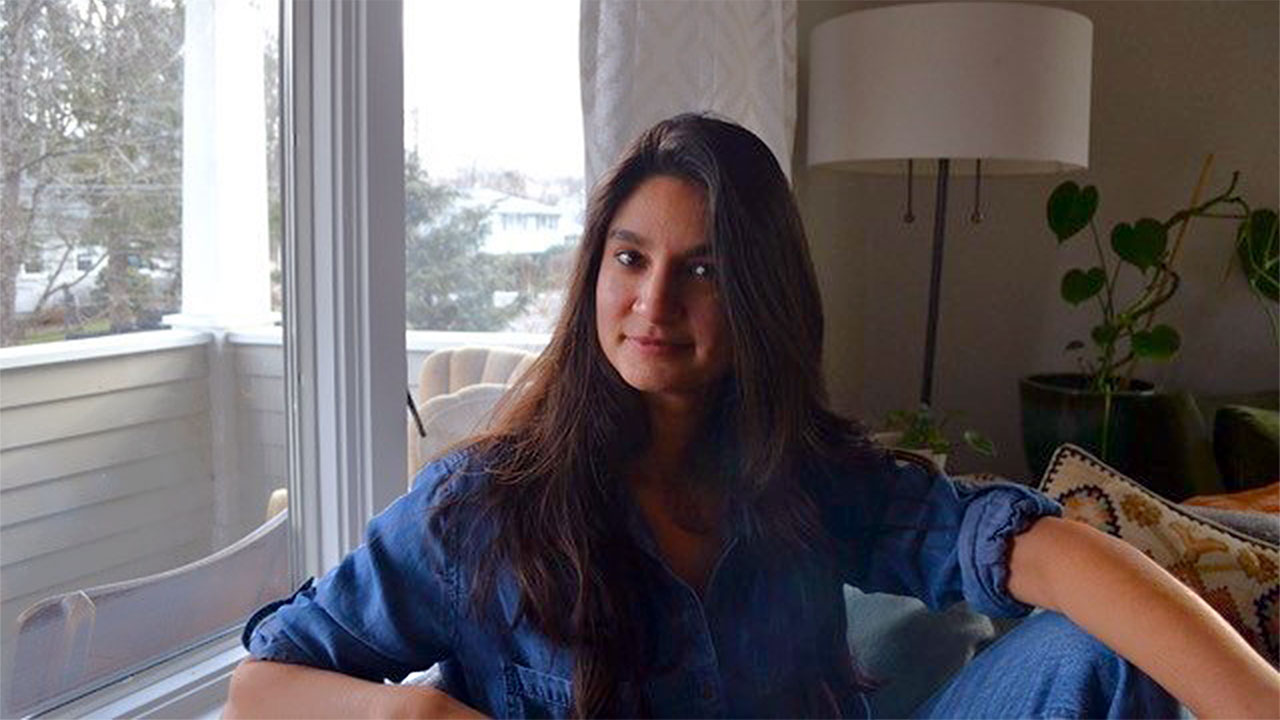Lindsay Kazi is a licensed clinical social worker (LCSW) who provides treatment to individuals with challenges and curiosities related to self and identity, relationships, and how one’s past shapes the present. She has served as SLU’s part-time Wellness Counselor since March 2023 and provides therapy, referrals and psychoeducation to students at no cost.
Lindsay sees SLU clients in video appointments or in a private space on campus. (Contact lindsay.kazi@slu.cuny.edu to schedule.) She received her Master of Social Work degree from Smith College School for Social Work. At SLU and her private practice in Brooklyn, Lindsay seeks to provide a warm and attentive space that encourages an exploration of the range and complexity of experience and feeling in order to deepen an understanding of self.
Lindsay grew up in Texas and lives in Brooklyn. In honor of Mental Health Awareness Month, the Chronicle asked Lindsay to tell us more about her work.
SLU Chronicle: What led you to SLU?
Lindsay Kazi: I’m trained as a social worker and although I mainly work clinically, one- on-one in a therapeutic setting with my patients, a large part of my training was rooted in critical theory, examining how systems and communities are organized around power and the ways individuals are impacted by forces such as social and structural oppression.
For this reason, many of my patients in private practice who I work with are activists and organizers. I also think that a shared goal between organizers and therapists feels clear to me: How do we give voice to and metabolize the very real and difficult feelings that emerge under the conditions of capitalism in order to bring about change in ourselves, our relationships, and the world around us?
What kinds of issues do SLU students come to you for?
I would say that most people are looking for help in putting language to their thoughts and feelings so they can feel less alienated from themselves, their internal world, from others, and in their relationships. It can be a relief for students to feel like someone is really listening and trying to understand from a place of warmth and curiosity.
What do you enjoy about your SLU work?
I really love working with and getting to know the students on a deeper level. I am also so inspired by the students who put what they are learning in school into practice by resisting and challenging existing power structures. I think the school has a lot to learn from the students who are still asking questions and pushing back at a time when our rights are being stripped away. I see this kind of willfulness and courage as necessary for any kind of new possibilities to emerge on a larger scale.
What would you recommend for SLU mental health services, if money was no object?
I would start with a private space dedicated solely to counseling where students can have in-person therapy. And I would focus on providing students with weekly therapy over the long term.
How is private practice different from SLU?
It’s not much different in terms of clientele. The biggest difference is that I work with my patients for years. I like the long-term model. There’s more time and space for a relationship to form, for more meaningful change and growth to occur, and a more profound sense of self to develop. I also get a lot out of the mutual investment and commitment of long-term therapy.
What’s a common question you hear?
I get asked a lot for “mental health advice.” I think that there is confusion about what a therapist actually does. We aren’t content creators or advice-givers. We don’t have one-size-fits-all answers or special tips. It is within the sometimes messy and difficult container of the therapeutic relationship that pains, conflicts, and difficulties can arise. Therapists accompany patients as they work through and understand these processes. Sometimes people want to “find the answer” quickly and are disappointed to discover that psychoanalysis is an intellectual practice of continual inquiry. In practice, therapy does just the opposite of finding an answer: It helps people articulate their internal conflicts and hold and better tolerate ambivalence.

